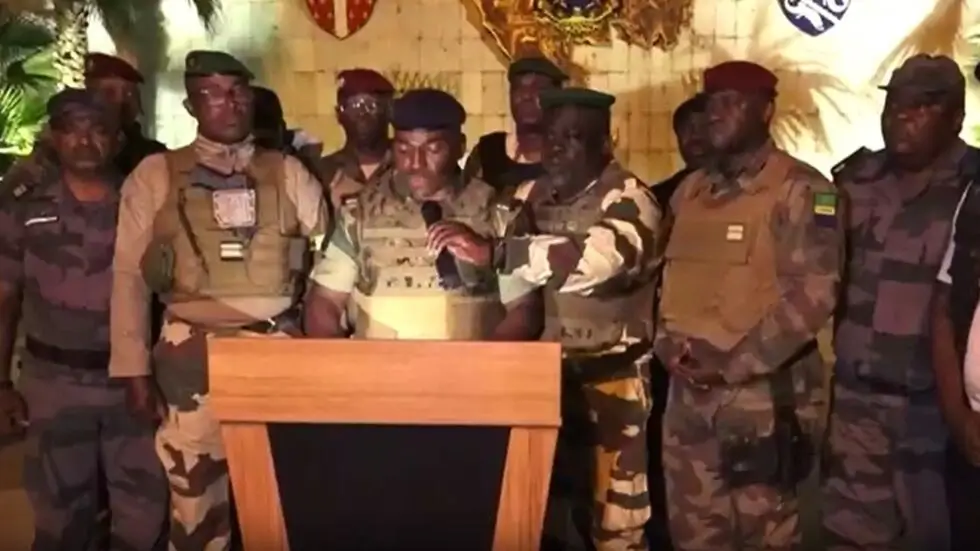What You Must Know About Gabon Military Coup
Some soldiers had appeared on Gabonese national television, announcing the cancellation of recent election results and the dissolution of “all the institutions of the republic”.
This followed the announcement on Wednesday of President Ali Bongo Ondimba as the winner of the presidential election. Bongo, as he’s popularly called, was re-elected for a third term.
Advertisement
The group of 12 officers made the announcement in which they said they had observed “irresponsible, unpredictable governance resulting in a continuing deterioration in social cohesion that risks leading the country into chaos…
“We have decided to defend the peace by putting an end to the current regime.”
The soldiers have equally announced that, “The borders are closed until further notice.”
Calling themselves ‘Committee for the Transition and Restoration of Institutions’, they have also said the country is “on the road to happiness.”,
Advertisement
Libreville, they added, will respect its commitments “to the national and international community.
“We call for calm and serenity from the public, the communities of sister countries settled in Gabon, and the Gabonese diaspora,” an officer has said on behalf of the committee on national television.
He added, “We reaffirm our commitment to respecting Gabon’s commitments to the national and international community.
“People of Gabon, we are finally on the road to happiness.”
The Gabonese Election Centre (CGE) had announced that Bongo won the disputed election with 64.27 per cent of the votes cast.
Advertisement
Michel Bonda, CGE head, further declared that Bongo’s main challenger, Albert Ossa, polled 30.77 per cent to finish second.
Bongo took over from his father, Omar in 2009. Omar died in power. The family has ruled the central African country for 53 years.
Although he suffered a stroke in 2018, with calls that he relinquish power, he has held on.
There was also a coup attempt in 2019. It failed and the soldiers were jailed.
No immediate reaction from the Gabonese government which declared curfew earlier.
The African Union has also not reacted.
Advertisement
The UN has also not reacted as Africa and global bodies continue to be occupied with the coup in Niger Republic.
But France, the country’s former colonial master has reacted. It’s Prime Minister Élisabeth Born has said France is following the situation in Gabon very closely, without providing further details.
The European Union has also reacted as its foreign policy chief Josep Borrell has said, “If this is confirmed, it is another military coup which increases instability in the whole region.
“The whole area, starting with Central African Republic, then Mali, then Burkina Faso, now Niger, maybe Gabon, it’s in a very difficult situation and certainly the ministers… have to have a deep thought on what is going on there and how we can improve our policy in respect with these countries,” he said.
French mining group Eramet, which has large manganese operations in Gabon, has said, “From this morning all Comilog and Setrag operations have been halted and train transport suspended.”
No one has been announced to have been killed so far but loud sounds of gunfire could be heard in Gabon’s capital Libreville, following the coup.
So far there’s jubilation across some areas in Gabon with no resistance from the people as people wake to reality.
The Internet has been restored four days after the Bongo government cut it off. Television stations and all media outlets have been allowed to do their duties.



